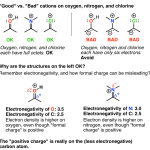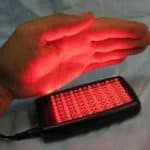Negative ions are atoms or molecules that have gained one or more extra electrons, creating a natural electrical charge. They are found in abundance in natural environments like oceans, waterfalls, and forests. The beach, in particular, is known to be a rich source of negative ions due to the constant breaking of waves and movement of water. In this essay, we will explore the benefits of negative ions at the beach and how they can positively impact our health and well-being.
Contents
What are Negative Ions?
Negative ions are oxygen atoms with extra electrons that are naturally occurring in the environment. They are found in abundance in places such as the beach, waterfalls, and forests. Negative ions are known to have a positive impact on our health and well-being.
How Negative Ions Affect Our Bodies
Negative ions have been shown to increase the flow of oxygen to the brain, resulting in increased alertness, reduced stress and anxiety, and an overall improvement in mood. They also help to neutralize free radicals, which can damage cells and cause disease. Negative ions have been linked to improved respiratory function, as they help to clear the airways and reduce inflammation.
Negative Ions and Sun Exposure
While negative ions are abundant at the beach, it is important to take precautions when it comes to sun exposure. Prolonged exposure to the sun’s rays can cause damage to the skin, including sunburn and an increased risk of skin cancer. It is important to wear protective clothing and sunscreen when spending time outdoors, especially during peak hours of sun exposure.
Negative Ions and Salt Water
Salt water has been shown to have a positive impact on our health and well-being. It is rich in minerals and negative ions, which can help to improve skin conditions such as eczema and psoriasis. However, it is important to note that salt water can also have a drying effect on the skin, so it is important to moisturize regularly when spending time at the beach.
Improved Mood
Studies have shown that negative ions can have a positive impact on our mood. The beach is a great place to soak up negative ions, as the crashing waves generate a large amount of them. Negative ions have been shown to increase the production of serotonin, a neurotransmitter that helps to regulate mood and reduce anxiety.
Better Sleep
Negative ions have also been linked to improved sleep quality. They help to increase the production of melatonin, a hormone that regulates sleep-wake cycles. Spending time at the beach and breathing in the negative ions can help to improve the quality of your sleep, leading to a more restful night’s rest.
Improved Respiratory Function
Negative ions have been shown to improve respiratory function, making the beach a great place for people with respiratory conditions such as asthma and allergies. Breathing in the negative ions can help to clear the airways and reduce inflammation, leading to improved breathing and reduced symptoms.
Increased Energy
Negative ions have been shown to increase energy levels and reduce fatigue. They help to stimulate the production of ATP, a molecule that provides energy to cells. Spending time at the beach and breathing in the negative ions can help to increase your energy levels and reduce feelings of fatigue.
Improved Immune Function
Negative ions have been shown to have a positive impact on our immune function. They help to stimulate the production of white blood cells, which are responsible for fighting off infections and diseases. Spending time at the beach and breathing in the negative ions can help to boost your immune function and improve your overall health.
FAQs – Negative Ions at the Beach
What are negative ions?
Negative ions are oxygen atoms that have gained an extra electron through a natural process, such as sunlight, radiation, waterfalls or waves. These ions can also be found in high concentrations in the air after a thunderstorm. They are negatively charged, hence their name, and have been found to have positive effects on human health and well-being.
How can I get negative ions at the beach?
The beach is one of the most natural sources of negative ions, thanks to the presence of the sun, the ocean and the waves. The motion of the waves causes water molecules to break apart into their individual components, including negative ions. The shoreline is an ideal spot to take advantage of this natural phenomenon, so it’s recommended to walk or sit on the beach as close to the water as possible for maximum exposure.
What are the benefits of negative ions at the beach?
Negative ions have been shown to have several benefits for human health, including reducing stress and anxiety, improving mood and mental clarity, increasing energy levels and oxygen absorption, and boosting the immune system. Spending time at the beach, surrounded by negative ions, can help to alleviate symptoms of depression, allergies, asthma and other respiratory conditions.
What is the best time of day to get negative ions at the beach?
The best time to get negative ions at the beach is early in the morning or late in the afternoon when the sun is not too strong. During these times, there is less ultraviolet radiation and more negative ions, which can help to balance the positive ions that are more prevalent during the day. However, it’s important to limit sun exposure during these times to avoid sunburn and other skin damage.
Are negative ions at the beach safe for everyone?
Negative ions are generally safe and beneficial for most people, but individuals with certain health conditions or allergies may want to consult their doctor before spending extended periods of time at the beach. For example, people with respiratory problems may benefit from the negative ions but should take care to avoid exposure to sand and other potential irritants. Likewise, people with sensitive skin should wear sunscreen and protective clothing to minimize the risk of sunburn and other skin damage.



.jpg)
.jpg)


